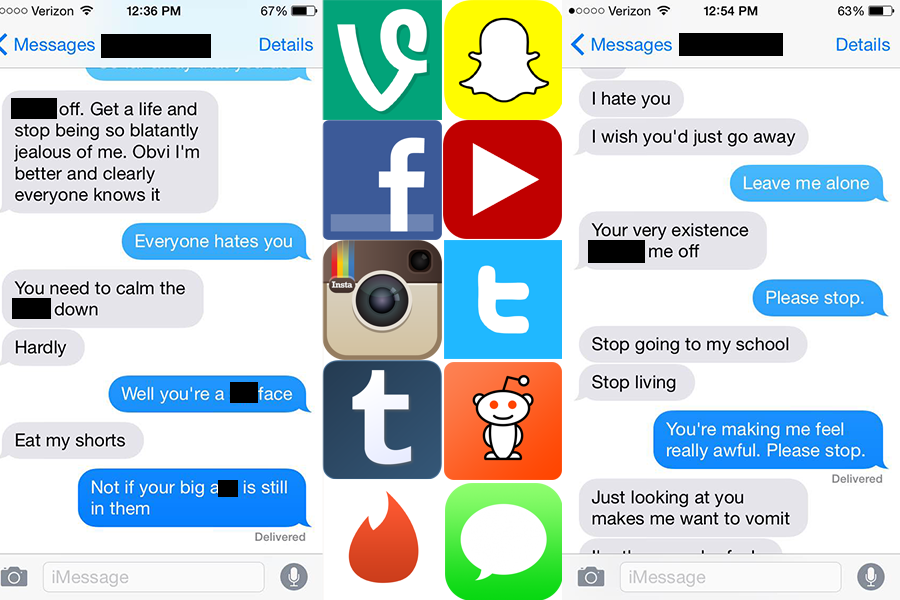The cyber conflict
While high schools focus much time and effort on preventing cyber-bullying , it doesn’t appear to be much of a problem at HB.
The above is an illustration of what cyber-bullying can look like. No one was bullied in the creation of this visual.
January 13, 2015
Yet another text, yet another instance of bullying. Behind the disguise of a typeface, words are able to pack a harder punch than ever before through the use of social media.
However, is the severity of such actions blown out of proportion?
There is no doubt that unkind, cruel people exist, and they should always be held accountable for the things they do and say against others. But at the same time, people constantly overreact to things posted on sites such as Facebook.
“Adults overreact much more than kids do,” said Erin Hattamer ’15. “I never see kids outwardly bullying, but the adults are constantly criticizing.”
Hattamer fell under fire in mid-November for a costume she and classmate Natalie Haytayan ’15 wore on Halloween that won a school contest. The two were called out by parents in a community Facebook group for insulting the towns of Hollis and Brookline.
“Most people took it as a satirical joke,” explained Hattamer. “Whenever you tell a joke, someon’es bound to be offended.”
The conflict has since then ended.
Cyber-bullying should not be as big of a problem as it is in today’s world, simply because it is one of the easiest things to avoid. All victims must do to shield themselves from Internet harassment is to turn off the device. As difficult as such an action may be, it’s important to prove to the bully that their hurtful words aren’t even getting through.
High school students seem to suffer from this form of bullying the most. A majority appear to have the mentality that others’ opinions are all that matter, and once they are considered an outcast, their lives are forfeit.
This could not be further from the truth.
High school is only a short period of time in our lives, and cyber-bullying victims must find a way to convince themselves that a few years of discomfort do not mean the end of the world. Rather, we must understand that we have unfathomable potential, and we need to pursue that to the best of our abilities regardless of people who try to tell us otherwise.
In addition, cyber-bullying is constantly exaggerated in schools and media outlets. In almost all schools, teachers and staff are required to react to any form of harassment: public or private, virtual or face to face. Time is taken out of the school day and reallocated to host presentations regarding the repercussions of bullying. Whenever someone unintentionally offends another, indirectly over social media, they are held responsible as if they intended to cause harm.
Cyber-bullying can be a problem for people, but there is no need to prioritize it in every institution–especially at the high-school level. Instead, there needs to be less normalization of the bad and more encouragement for the good.















